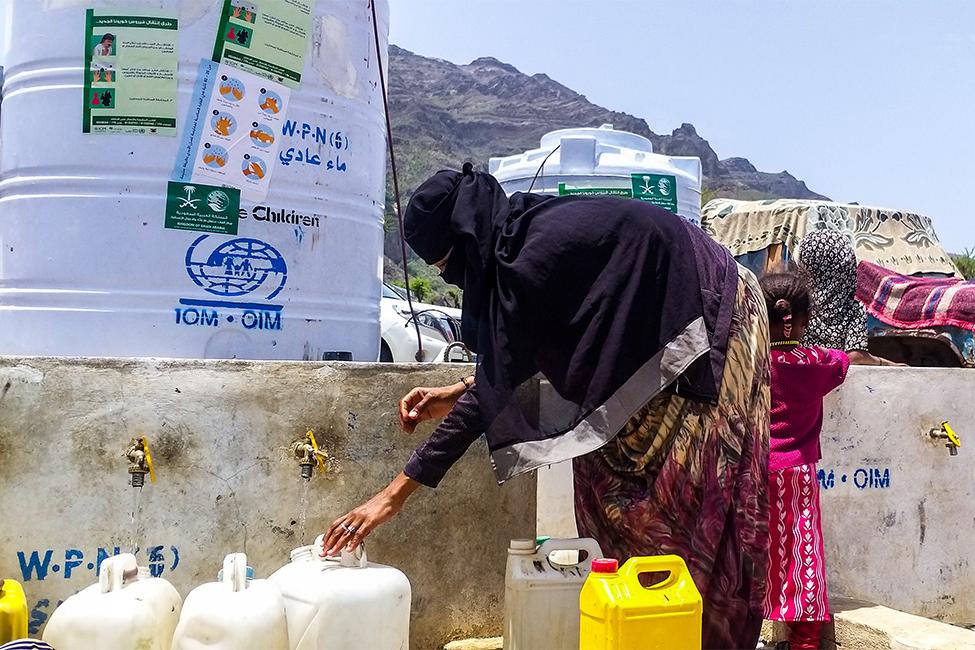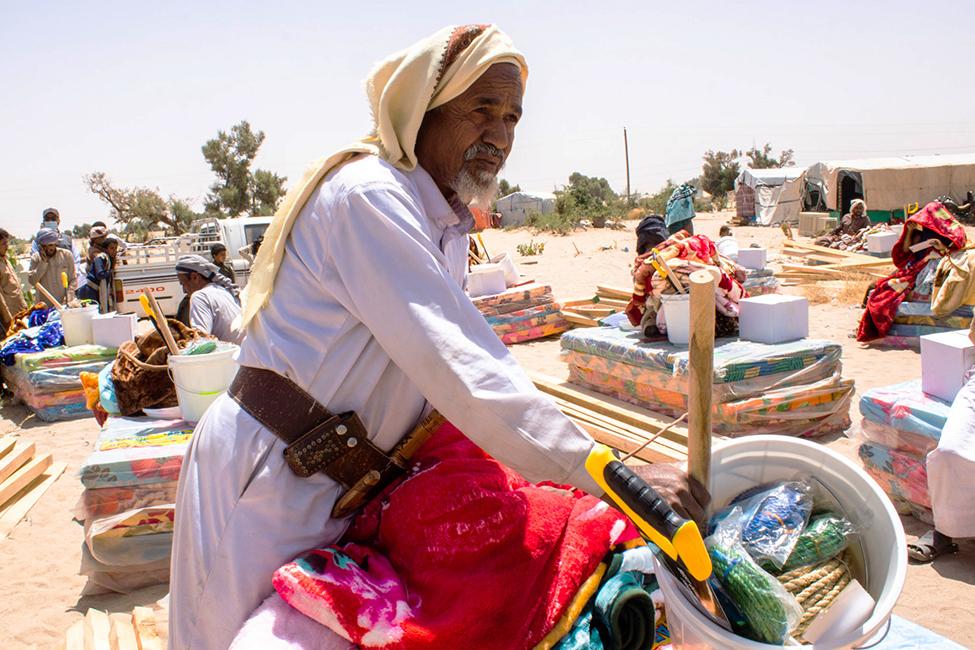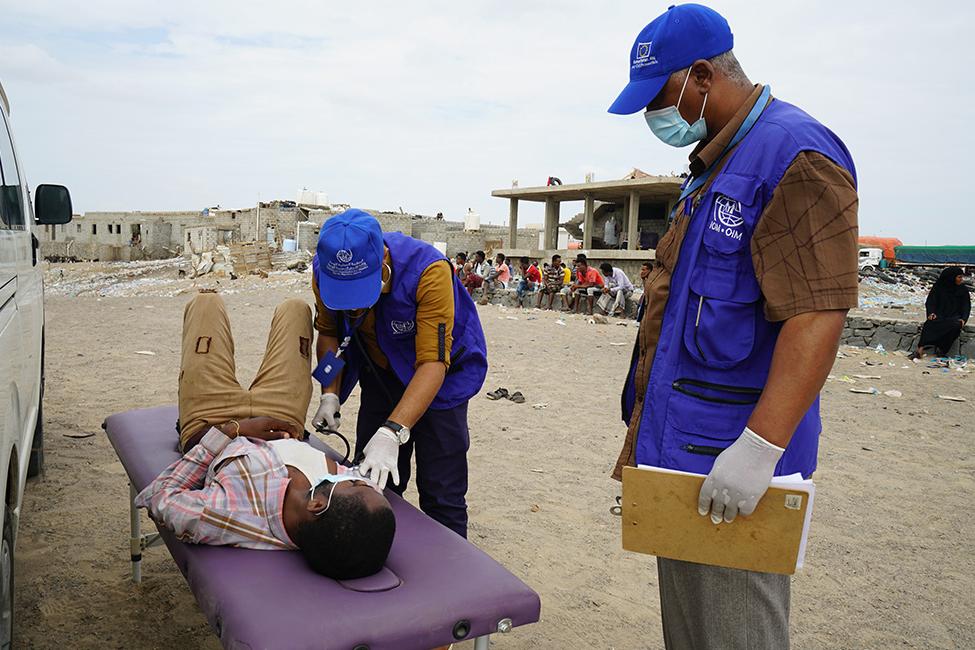-
Who we are
WHO WE AREThe International Organization for Migration (IOM) is part of the United Nations System as the leading inter-governmental organization promoting since 1951 humane and orderly migration for the benefit of all, with 175 member states and a presence in 171 countries.
-
Our Work
Our WorkAs the leading inter-governmental organization promoting since 1951 humane and orderly migration, IOM plays a key role to support the achievement of the 2030 Agenda through different areas of intervention that connect both humanitarian assistance and sustainable development.
What We Do
What We Do
Partnerships
Partnerships
- Where we work
-
Take Action
Take Action
Work with us
Work with us
Get involved
Get involved
- Data and Research
- 2030 Agenda
Yemen: Millions of Displaced Persons and Migrants Desperate for Aid Amid Funding Shortfalls
Geneva – The International Organization for Migration (IOM) said today millions of lives remain at risk in Yemen, as it echoed a United Nations call for urgently needed funds to allow aid organizations to continue responding to the world’s largest humanitarian crisis.
IOM has appealed for USD 170 million in 2021 to meet the increasing needs of displaced, conflict-affected and migrant communities in Yemen. As of today, only half of these funds have been received. The USD 3.85 billion Humanitarian Response Plan for Yemen is also only funded at 50 per cent.
“Without additional funding, organizations like IOM may have no choice but to drastically reduce operations, which would leave tens of millions of people without food, water and healthcare they rely on to get by each day,” IOM’s Deputy Director-General for Operations, Ugochi Florence Daniels, said today ahead of an event on Yemen's humanitarian situation held on the sidelines of the UN General Assembly today.
Earlier this year, donors rallied to support the millions of Yemeni and migrant children, men and women facing alarming levels of acute malnutrition and food insecurity, as COVID-19 also threatened their well-being and livelihoods. Generous contributions allowed aid organizations like IOM to maintain programming and avert disaster.
Still, the situation is dire for the more than 20 million people affected by the crisis. Nearly 5 million people are again on the brink of famine, 4 million are displaced, two-thirds of the population relies on humanitarian assistance, and another wave of COVID-19 has arrived. Some 32,000 migrants are stranded and at risk of exploitation and abuse.
Critical areas of the response remain severely underfunded. Aid partners have received less than 10 per cent of funding needed to deliver lifesaving health, water and sanitation, and refugee and migrant support.
“Now is the time to scale up, not down, our lifesaving interventions if we are to avert suffering and keep up with the rising needs that have been compounded by the pandemic,” Daniels said.
Lives can be changed when humanitarian funding is available. Last year, IOM reached 6 million people with humanitarian assistance. This year, the Organization has so far supported 2 million conflict-affected people and migrants with emergency aid.
IOM has maintained lifesaving operations in locations such as Marib, where thousands are fleeing fighting. In keeping with the Organization’s strategy to respond in some of the most underserved areas, IOM has also expanded aid to the west coast of Yemen. In partnership with authorities in Yemen and Ethiopia, IOM successfully relaunched its Voluntary Humanitarian Return programme, helping over 1,000 vulnerable migrants stranded in Yemen so far this year.
These successes would not have been possible without donor support but funding is quickly running out and lifesaving programmes risk reductions.
Read about IOM Yemen’s full appeal online here.
IOM's Global Crisis Response Platform provides an overview of IOM's planned activities and funding requirements to respond to the evolving needs and aspirations of those impacted by, or at risk of, crisis and displacement in 2021 and beyond.
For more information, please contact:
In Yemen: Angela Wells, IOM Yemen Media and Communications Officer, email: awells@iom.int, Tel: +967 730 552233; or IOM Yemen’s Communications Team at iomyemenmediacomm@iom.int
In Geneva: Paul Dillon, Managing Editor and Spokesperson, email: pdillon@iom.int, Tel: + 41 79 636 9874


